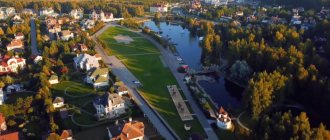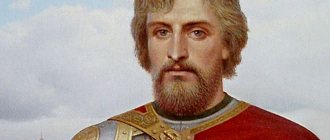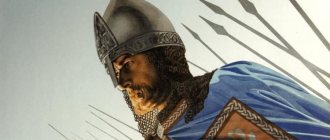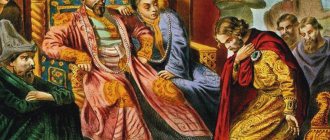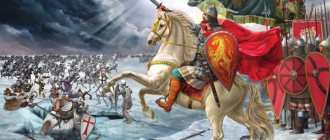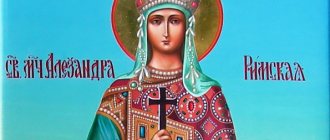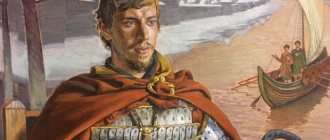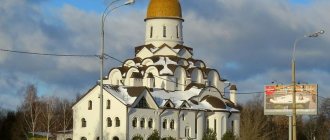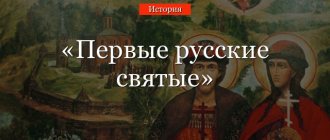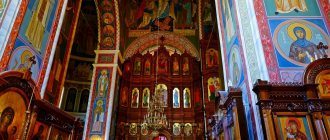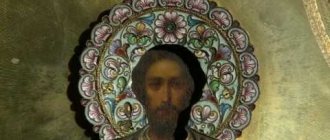The life feat of Prince Alexander Nevsky is kept in the memory of our people from century to century. It is interesting that even the period of persecution of the Church did not shake the respect for the works and achievements of the saint. Many young men born in the second half of the 20th century considered him a worthy role model.
I would like to hope that current and subsequent generations will find in the life and character traits of Grand Duke Alexander something that will resonate beneficially in their hearts. It is important to understand that his courage, prudence, and balanced approach to politics were based on deep personal Christian piety.
Who has a name day these days?
There are several saints named Alexander in the church calendar. Traditionally, believers bearing this name choose their patron:
- according to the proximity of the day of remembrance to the Christian’s birthday;
- due to the special veneration of one or another saint named Alexander.
Thus, the name day on the days of memory of the blessed prince is celebrated by Orthodox Christians who bear the name of Alexander and venerate him as their heavenly patron.
Other dates
In addition, the saint is revered together with the saints of God:
- Vladimirsky (July 6);
- Novgorod and St. Petersburg (the dates of both celebrations are transferable);
- Rostov and Yaroslavl (June 5);
- Karelian (June 3);
- Tula (October 5);
- Estonian (December 1);
- Nizhny Novgorod (date of holiday is moving).
All these cities and localities carefully preserve the memory of the events in the prince’s life associated with them.
Piety and spiritual achievement
Power is a difficult test for any person. If he is gifted with the talents of a commander, strategist, politician and diplomat... Then power is capable of sweeping away all spiritual priorities and crushing the sprouts of spiritual purity.
The main ascetic feat of a ruler consists of preserving philanthropy, preserving the skill of looking at the sky with humility. History shows that even in our Orthodox land such statesmen are very rare.
The holy noble prince Alexander won the main battle that faces any Christian - the battle for his soul. Behind the actions of a warrior and a politician, a sensitive eye sees valuable evangelical virtues.
With humility and trust in God, the holy prince suppressed his pride when he went to the Horde. In order to ask for peace again and again for their lands. He was eager to defend the faith of his fathers when he said before the battle with the Swedes: “ God is not in power, but in truth .”
The noble prince Alexander became like the biblical Joseph when again and again he forgave his brothers in Christ, the Novgorodians, who arrogantly expelled him several times. From year to year, he carefully decorated and donated temples, granted them land, and gave them utensils and books. Thus strengthening the Orthodox faith.
Monasticism
At critical moments, the foundations of the inner life of the soul manifest themselves most clearly. Some people panic and give up, some begin to blame others for everything, some go crazy.
A strong spirit takes the blows of fate steadfastly. The believer seeks support in his trust in God. It is in Christian piety that one should look for the origins of the courage and wisdom of the blessed Prince Alexander.
The last days of a person’s life show the main goals of life that he set for himself. Constant rewriting of the will, vanity and despondency are signs that the soul has become attached to the riches of this world. An empty look of despair is a sign of disbelief.
The schema and the adoption of monasticism are evidence of the priority of Christian spirituality in life. Having lost his bodily strength, the holy noble prince Alexander enters the field of deep prayer before God for his people. Judging by the events of subsequent centuries, he was not defeated on this path either.
When is Alexander Nevsky's birthday?
Is this day marked in the Orthodox calendar?
For a long time, May 30, 1221 was considered the prince’s birthday. The date was first named by the Russian historian V.N. Tatishchev. However, the sources he used have not been found.
Since the mid-1990s. historians have identified another possible date of birth of the saint - May 13 . Most scientists are now inclined towards it. From a church point of view, the specific birthday of a saint of God is not of fundamental importance. With the rarest exceptions (the days of the Nativity of the Blessed Virgin Mary, St. John the Baptist, St. Nicholas), it is usually not the birth, but the repose of the saint, his transition to eternal life, or the transfer of his relics that is celebrated. It is these dates that attention is also drawn to in the case of blgv. book Alexandra.
800th anniversary of the birth of the prince
Due to the great importance of the prince as a statesman, in 2022 a decision was made on an all-Russian celebration of her anniversary. The date of celebration was determined on May 13, based on the latest historical data. At the same time, various conferences and exhibitions dedicated to the memory of the saint are held throughout Russia throughout the year.
Serving your people and Fatherland
Historical science knows the Holy Blessed Prince Alexander, first of all, as a successful military leader who did not lose a single battle. He is celebrated as a talented statesman who was able to lay the foundation for the formation of Russian statehood.
Prince Alexander was born in 1221 in the town of Pereslavl-Zalessky. He began to reign in Novgorod from the age of seven.
He will have difficult relationships with the Novgorod boyars throughout his life. However, this city, like the northern principalities of Rus', owe their safety to him during the period of the cruelties of the Mongol-Tatar invasion.
The Grand Duke reigned for 35 years. These were difficult years for our lands. Most of Rus' was burned out by the Mongol conquerors. It was necessary to negotiate peace with them in order to preserve what was left. The western and northern borders were captured by the Crusader orders and the Swedes. The young prince, with a small squad, defeated the Swedes’ army on a tributary of the Neva, for which the people called him “Nevsky”. Then on Lake Peipsi he also defeated the crusaders of the Livonian Order. He pushed the knights of the Teutonic Order from the borders of his principality. He conducted flexible negotiations with Norway and the Prince of Lithuania, and concluded trade agreements with German cities.
At that time, the spiritual expansion of Catholicism was underway. The Pope promised the appanage princes help and protection from the Golden Horde in exchange for accepting the protectorate. However, Prince Alexander refused such crafty “support”.
Rus' was weak. At this time, all its spiritual, territorial and cultural principles could collapse. During the period of his reign, showing wisdom, flexibility, and prudence, the noble prince Alexander took care of preserving the surviving principalities, rebuilding burned cities, and preserving his people. It was in these labors that the prince remained until the time of his death. Having accepted the vows of monasticism and the schema in 1263, Alexander Yaroslavovich went to the Lord with prayer for his land and his people.
Having learned about the strength of the enemy, he went out to meet Prince Alexander to tell him about their camps. He stood on the seashore, watching both routes, and spent the whole night without sleep. When the sun began to rise, he heard a strong noise on the sea and saw one boat floating on the sea, and standing in the middle of the boat were the holy martyrs Boris and Gleb in red robes, holding their hands on each other’s shoulders. The rowers sat as if covered in darkness. Boris said: “Brother Gleb, tell us to row, and let us help our relative Prince Alexander.” Seeing such a vision and hearing these words of the martyrs, Pelugius stood, terrified, until the attack disappeared from his eyes.
Soon after this, Alexander came, and Pelugius, joyfully meeting Prince Alexander, told him alone about the vision. The prince told him: “Don’t tell this to anyone.”
After that, Alexander hastened to attack the enemies at six o'clock in the afternoon, and there was a great slaughter with the Romans, and the prince killed countless numbers of them, and on the face of the king himself he left the mark of his sharp spear.
Six brave men, like him, from Alexander’s regiment showed themselves here.
The first one is named Tavrilo Oleksic. He attacked the auger and, seeing the prince being dragged by the arms, rode all the way to the ship along the gangplank along which he and the prince were running; those pursued by him grabbed Gavrila Oleksich and threw him off the gangplank along with his horse. But by God's mercy he emerged from the water unharmed, and again attacked them, and fought with the commander himself in the midst of their army.
The second one is named Sbyslav Yakunovich, a Novgorodian. This one attacked their army many times and fought with one ax, having no fear in his soul; and many fell by his hand, and they marveled at his strength and courage.
The third - Yakov, a native of Polotsk, was a hunter for the prince. This one attacked the regiment with a sword, and the prince praised him.
The fourth is a Novgorodian named Mesha. This man on foot and his retinue attacked the ships and sank three ships.
The fifth is from the younger squad, named Sava. This one burst into the large royal golden-domed tent and cut down the tent pole. The Alexandrov regiments, seeing the fall of the tent, rejoiced.
The sixth is from Alexander’s servants, named Ratmir. This one fought on foot, and many enemies surrounded him. He fell from many wounds and died that way.
I heard all this from my master, Grand Duke Alexander, and from those who participated in this battle at that time.
There was a wondrous miracle at that time, as in the days of old under Hezekiah the king. When Sennacherib, the king of Assyria, came to Jerusalem, wanting to conquer the holy city of Jerusalem, an angel of the Lord suddenly appeared and killed one hundred and eighty-five thousand of the Assyrian army, and when morning came, they found only dead corpses. This was the case after Alexandrov’s victory: when he defeated the king, on the opposite side of the Izhora River, where Alexandrov’s regiments could not pass, a countless number of those killed by the angel of the Lord were found here. Those who remained fled, and the corpses of their dead soldiers were thrown into ships and sank them into the sea. Prince Alexander returned in victory, praising and glorifying the name of his Creator.
In the second year after Prince Alexander returned with victory, they again came from the Western Country and built a city on the land of Alexandrova. Prince Alexander soon went and destroyed their city to the ground, and hanged them, some, took others with him, and, having pardoned others, released them, for he was immeasurably merciful.
After Alexandrova’s victory, when he defeated the king, in the third year, in winter, he went with great strength to German land, so that they would not boast, saying: “Let us subdue the Slovenian people.”
And they had already taken the city of Pskov and imprisoned the German governors. He soon expelled them from Pskov and killed the Germans, and tied up others and liberated the city from the godless Germans, and ravaged and burned their land and took countless prisoners, and killed others. The proud Germans gathered and said: “Let's go and defeat Alexander and capture him.”
When the Germans approached, the guards found out about them. Prince Alexander prepared for battle, and they went against each other, and Lake Peipus was covered with many of these and other warriors. Alexander's father Yaroslav sent his younger brother Andrei with a large retinue to help him. And Prince Alexander also had many brave warriors, like King David in ancient times, strong and strong. So Alexander’s men were filled with the spirit of war, because their hearts were like the hearts of lions, and they exclaimed: “O our glorious prince! Now the time has come for us to lay down our heads for you.” Prince Alexander raised his hands to the sky and said: “Judge me, God, judge my quarrel with the unrighteous people and help me, Lord, as in ancient times he helped Moses overcome Amalek and our great-grandfather Yaroslav the accursed Svyatopolk.”
Memory of Alexander in literature and art
In Russia and abroad, many streets, alleys and squares are named after Alexander Nevsky. Many temples were built in honor of the saint. The saint is the invisible patron of the Northern capital of Russia and the city of Petrozavodsk. Unfortunately, not a single realistic image of the prince has reached us from the depths of centuries.
At all times, artists have depicted it according to their own understanding and perception. This is exactly how the works of Mikhail Nesterov and Pavel Korin appeared. Alexander Nevsky was depicted in sculpture by different masters. Thus, in Pskov, on Mount Sokolikha, there is a monument to the sculptor Kozlovsky, who depicted the prince surrounded by his army.
The heroic memory of Alexander Nevsky during the war years was truly of great importance. The Order of Alexander Nevsky was established for Soviet soldiers, on which the architect Telyatnikov depicted the features of the actor Nikolai Cherkasov. The outstanding Petersburger played the role of the prince in the 1938 film of the same name. It is his appearance that is still perceived by descendants as a plausible image of an ancient Russian prince.
Among the later films, it is worth noting the film by Igor Kalenov with Anton Pampushny in the role of the prince. In 2015 and 2022, the films “Druzhina” by Mikhail Kolpakhchiev and “Rurikovich” were released. History of the First Dynasty” directed by Maxim Bespaly. The image of the Grand Duke of the Russian Middle Ages continues to interest modern historians.
List of used literature:
- A.P. Bogdanov "Alexander Nevsky".
- V.T. Pashuto "Alexander Nevsky".
- Novgorod first chronicle of the younger edition.
- Sofia First Chronicle (according to the list of I.N. Tsarsky 1851).
- Pskov Chronicles.
